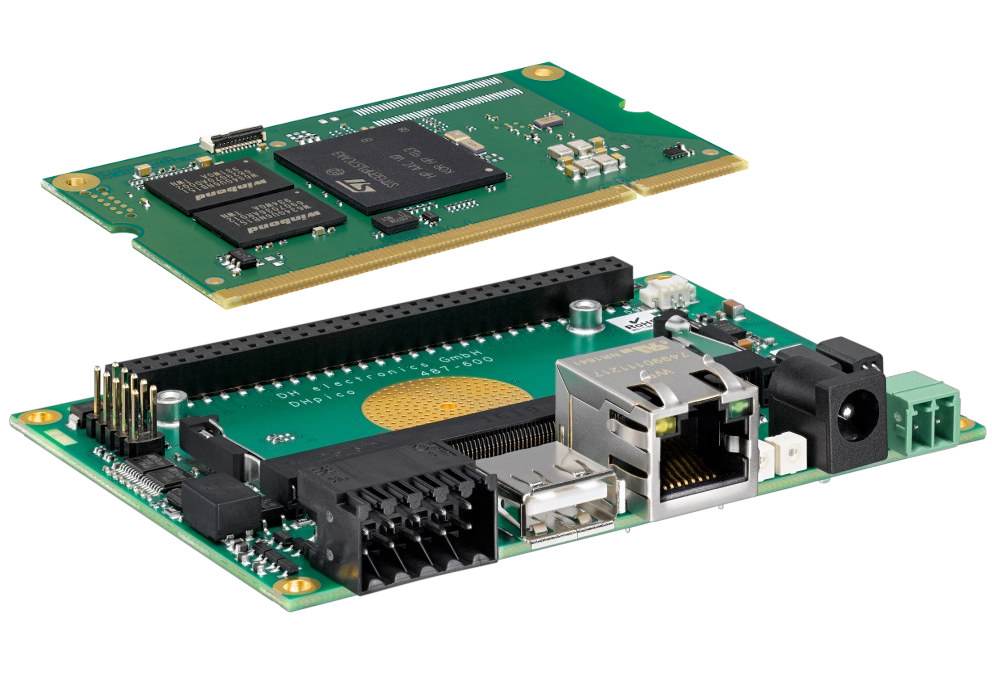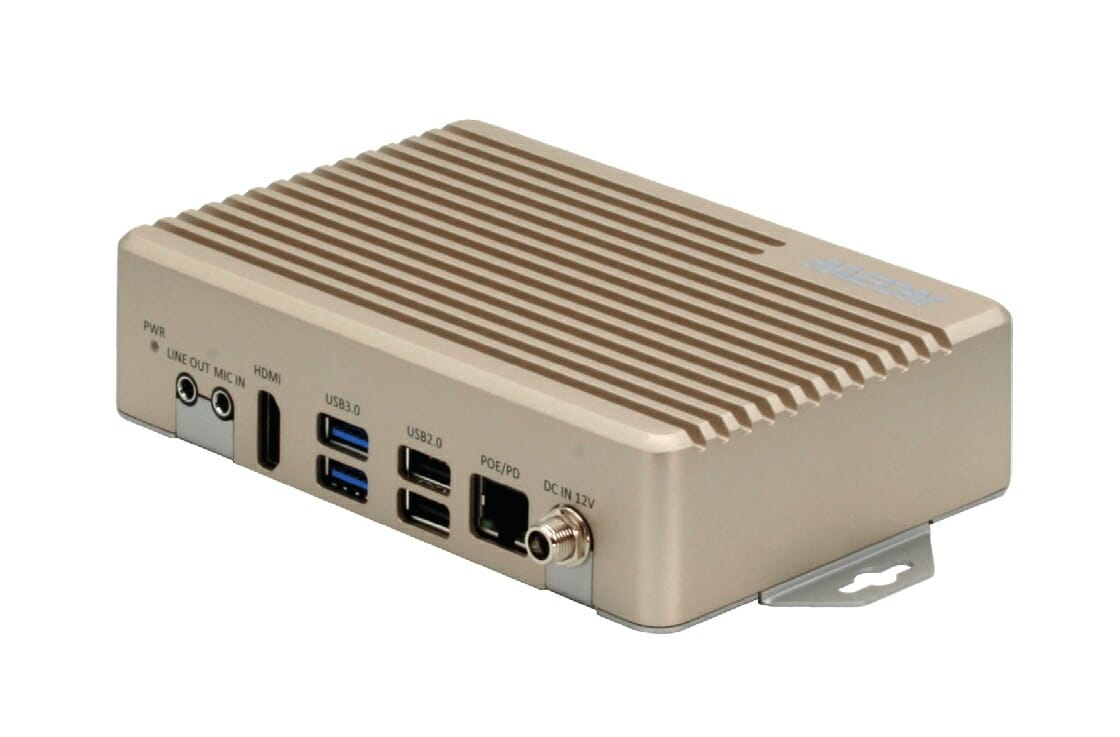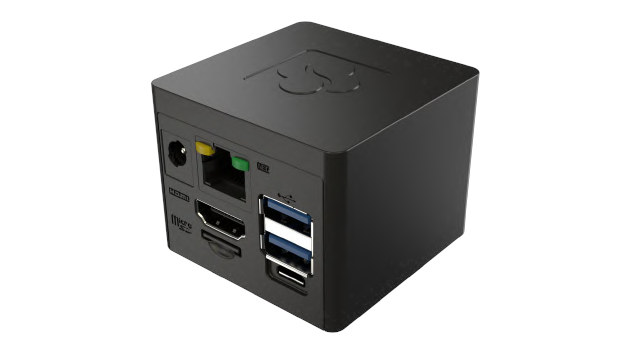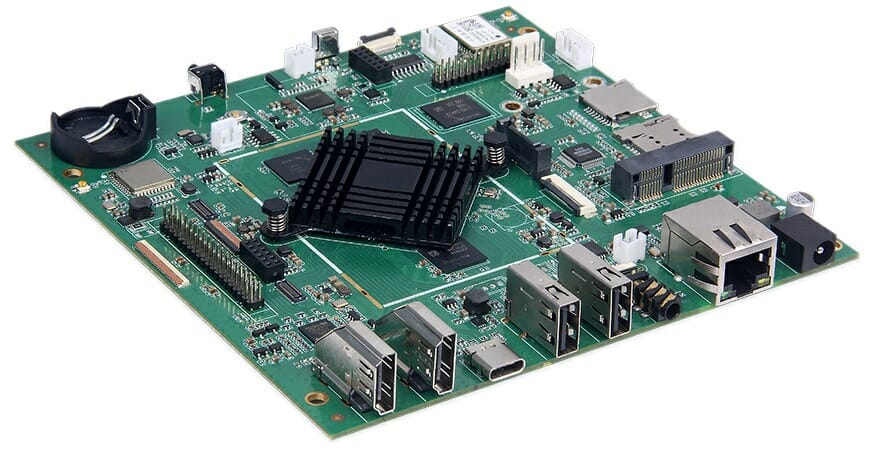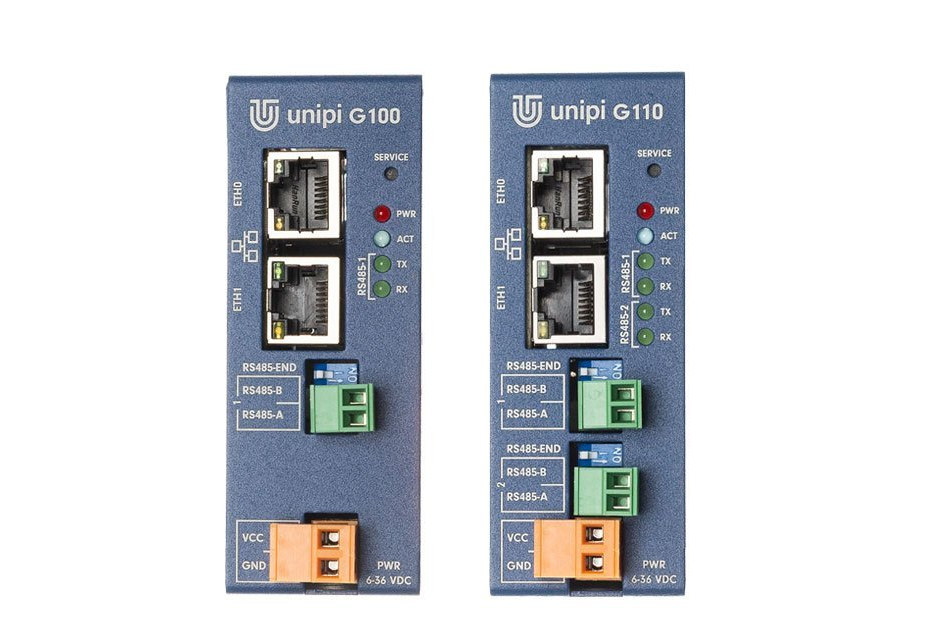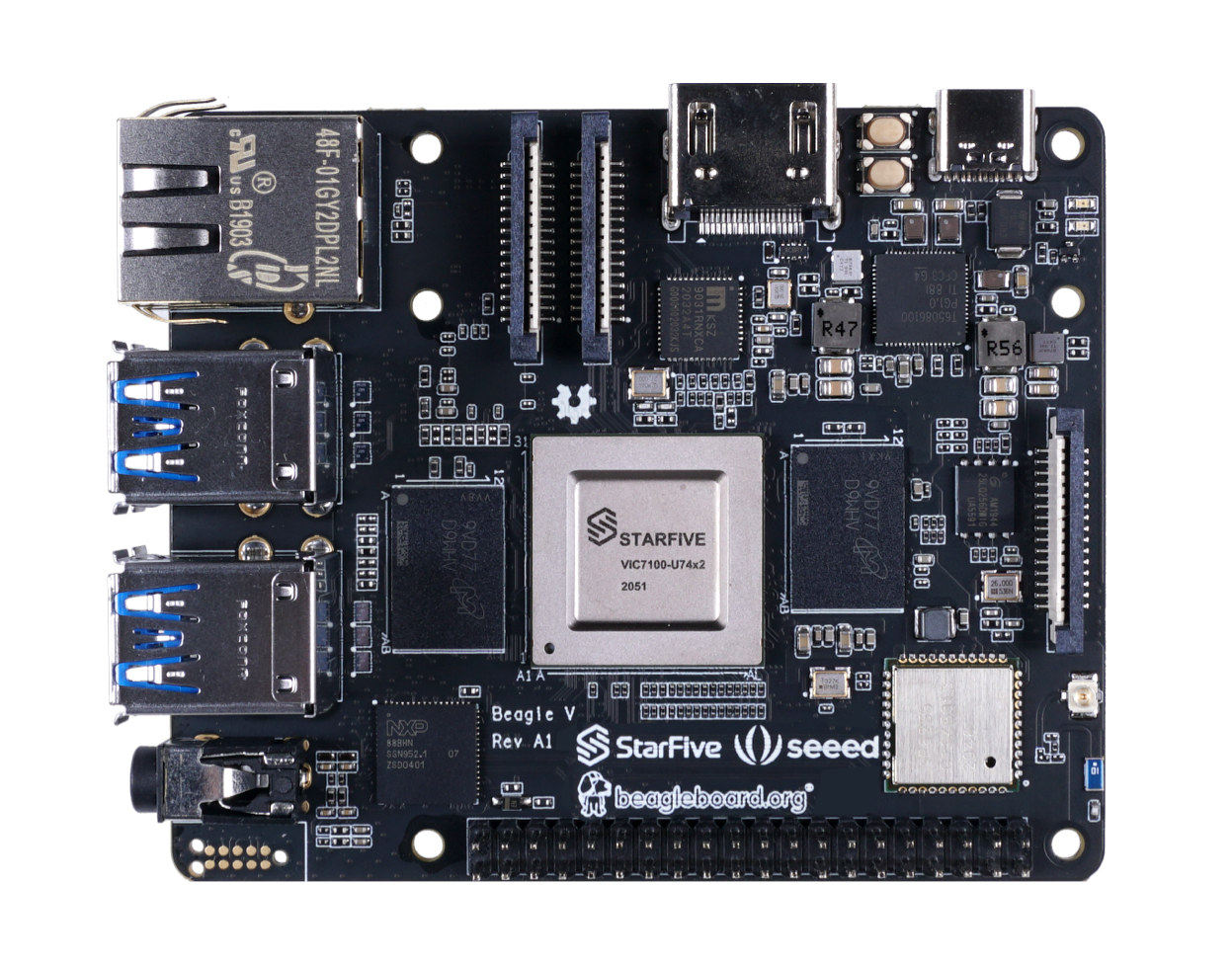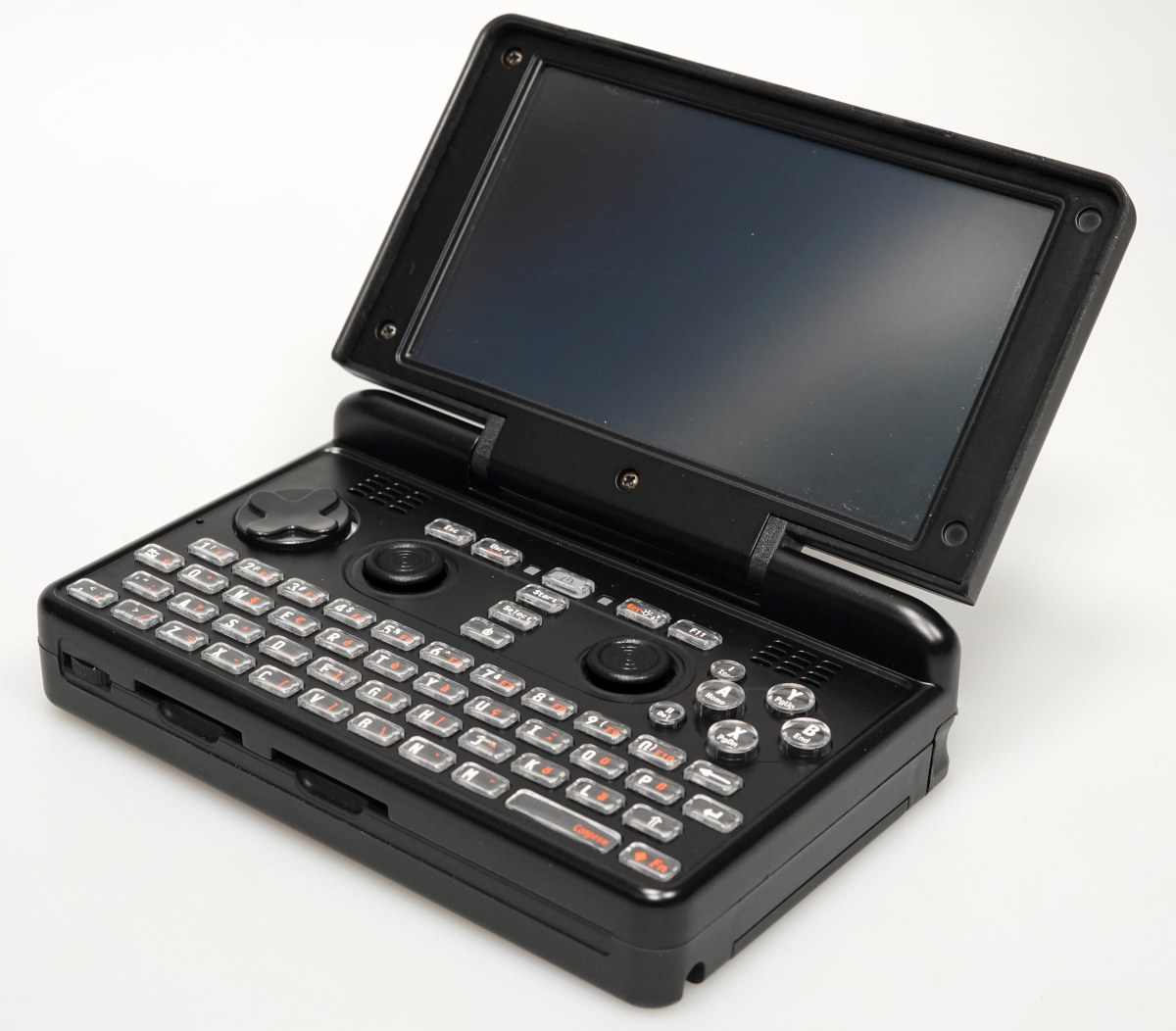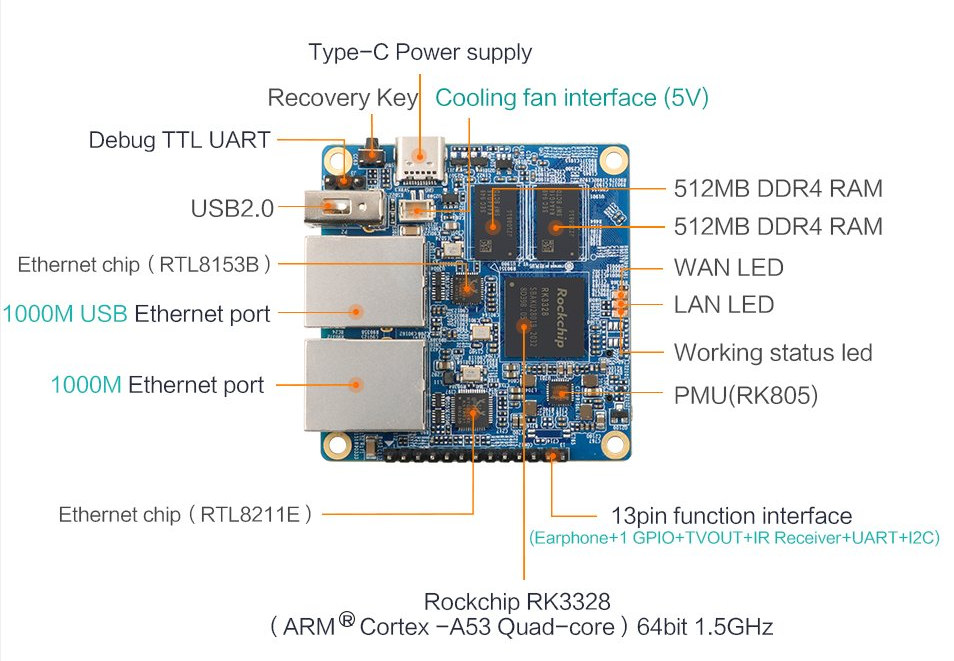DH electronics DHCOM STM32MP1 is an STMicro STM32MP1 Cortex-A7/M4 system-on-module (SoM) following the company’s SO-DIMM-based DHCOM standard, and capable of running Linux with Etnaviv GPU drivers. The SoM is compatible with two DHCOM carrier boards from the company, namely DH PDK (Premium Developer Kit) for development, and DH PicoITX2 Pico-ITX board for direct integration into products. DHCOM STM32MP1 SoM DHCOM STM32MP1 specifications: SoC – STMicro STM32MP15x with up to two Arm Cortex-A7 core up to 650 MHz, one Arm Cortex-M4 up to 209 MHz, Vivante 3D GPU @ up to 533 MHz with OpenGL ES 2.0 support System Memory – 256, 512, or 1024 MB 32-bit DDR3 DRAM Storage 4, 8, or 16 GB eMMC flash 2 MB boot flash 256 bytes EEPROM MicroSD card socket on module Connectivity – WiFi 4 IEEE 802.11 a/b/g/n, 802.11j (hosted mode) with dual band, Bluetooth 5.0 (BR/EDR/BLE), PCB antenna and U.FL antenna connector […]
PoE powered AI Edge computer combines NXP i.MX 8M SoC with Google Edge TPU
AAEON has introduced several BOXER AI edge computers over the years either powered by an NVIDIA Jetson module, a HiSilicon HI3559A Arm SoC, or an Intel processor combined with Movidius Myriad AI accelerator. The latest model, BOXER-8521AI, combines an NXP i.MX 8M SoC with Google Edge TPU AI accelerator, and offers 1GB RAM, USB ports, a 40-pin external I/O connector, and 12V or PoE power inputs. AAEON BOXER-8521AI specifications: SoC – NXP i.MX 8M SoC quad-core Cortex-A53 processor with Cortex-M4F real-time core, 2D/3D GPUs AI Accelerator – Google Edge TPU ML accelerator coprocessor System Memory – 1GB LPDDR4x RAM Storage – 8GB eMMC flash, MicroSD card slot Video Output – 1x HDMI 2.0a port Audio – 1x Mic-in, 1x Line-out, optional 2x MEMS microphones Connectivity Gigabit Ethernet RJ45 port with PoE (802.3at) Optional? WiFi 2×2 MIMO (802.11b/g/n/ac 2.4/5GHz) & Bluetooth 4.1 plus two antennas USB – 2x USB3.2 Gen 1 […]
SolidRun CuBox-M 2-inch Arm Linux/Android mini PC packs a 2.3 TOPS AI accelerator
SolidRun first introduced the tiny CuBox Arm Linux mini PC in 2011, with the device based on a Marvell Armada 510 dual-core Armv7 processor, and followed in 2013 with the launch of the CuBox-i family powered by Freescale i.MX 6 single to quad-core Cortex-A9 processor. The company moved to NXP i.MX 8M processor in 2018 with the introduction of CuBox Pulse, and now they’ve introduced their first Cubox mini PC with a built-in AI accelerator. Meet CuBox-M mini PC powered by NXP i.MX 8M Plus quad-core Cortex-A53 processor with a 2.3 TOPS NPU. Cubox-M mini PC specifications: SolidRun i.MX 8M Plus System-on-Module (SoM) SoC – NXP i.MX 8M Plus Quad quad-core Arm Cortex-A53 processor @ 1.8 GHz with Arm Cortex-M7 up to 800MHz, Vivante GC7000UL 3G GPU (Vulkan, OpenGL ES 3.1, OpenCL 1.2), 2.3 TOPS NPU, 1080p60 H.264/H.265 video encoder, 1080p60 video decoder (H.265, H.264, VP9, VP8), Candence HiFi4 audio […]
Geniatech RK3568 Development Board to support Android 11 and Linux
RK3566 and RK3568 are the latest AIoT processors from Rockchip equipped with four Arm Cortex-A55 cores, a Mali-G52 GPU, and an impressive range of peripherals that make them suitable for all sorts of applications including AI edge computing and network video recorder (NVR). We already know Pine64 is working on Quartz64 SBC based on Rockchip RK3566, but I’ve just noticed Geniatech’s “RK3568 development board” that should offer even more features since the processor comes with extra I/Os compared to its little brother. Let’s have a look. Geniatech RK3568 development board specifications: SoC – Rockchip RK3568 quad-core Cortex-A55 processor up to 2.0 GHz with Arm Mali-G52 GPU supporting OpenGL ES 1.1/2.0/3.2, OpenCL 2.0, Vulkan 1.1, 0.8 TOPS NPU for AI acceleration System Memory – Up to 4 GB LPDDR4 Storage – Up to 128 GB eMMC 5.1 flash, 1x SATA 3.0 port, MicroSD card slot, M.2 socket for NVMe SSD (See […]
UniPi Gate RS485 Linux IoT Gateway features 600 MHz Rockchip RK3328 SoC
Based in the Czech Republic, UniPi Technology design and manufacture programmable logic controllers, gateways, sensors and systems for smart homes, building management systems, industry and automation projects. Their latest product is UniPi Gate G100/G110 Linux IoT gateway with Ethernet and RS485 interfaces. When the company contacted CNX Software about the gateway, they told us the system was based on a quad-core Cortex-A53 processor clocked at 600 MHz. Since we are not aware of such SoC, we asked, and UniPi told us it was Rockchip RK3328. That processor is normally clocked at 1.5 GHz, and it turns out the company purposely underclocked the processor to 600 MHz to extend the temperature range and reduce the heat emitted by the CPU. UniPi Gate G100 & G110 specifications: SoC – Rockchip RK3328 quad-core Cortex-A53 processor @ 600 MHz System Memory – 512MB RAM Storage – 16GB eMMC flash, MicroSD card slot Networking – […]
$119+ BeagleV powerful, open-hardware RISC-V Linux SBC targets AI applications
Running Linux on RISC-V hardware is already possible, but you’d have a choice of low-end platforms like Kendryte K210 that’s not really practical for anything, or higher-end board like SiFive HiFive Unmatched or PolarBerry for which you’d have to spend several hundred dollars, or even over one thousand dollars to have a complete system. So an affordable, usable RISC-V Linux SBC is clearly needed. We previously wrote about an upcoming Allwinner RISC-V Linux SBC that will be mostly useful for camera applications without 3D GPU, and a maximum of 256MB RAM. But today, we have excellent news, as the BeagleBoard.org foundation, Seeed Studio, and Chinese fabless silicon vendor Starfive partnered to design and launch the BeagleV SBC (pronounced Beagle Five) powered by StarFive JH7100 dual-core SiFive U74 RISC-V processor with Vision DSP, NVDLA engine, and neural network engine for AI acceleration. BeagleV specifications: SoC – StarFive JH7100 Vision SoC with: […]
Dragonbox Pyra open source hardware handheld Linux PC is finally shipping
We first covered the Dragonbox Pyra in 2014 when it was described as an open-source handheld game console powered by Texas Instruments OMAP5432 SoC, or maybe AllWinner A80, Intel Bay Trail, or Qualcomm Snapdragon processors since the exact specifications were still in the works for the Pandora successor. Michael Mrozek (EvilDragon) finally decided to keep going with the OMAP5 processor due to the good documentation and software support, and pre-orders started in 2016 with a 330 to 400 Euros downpayment and no clear timeline about shipping. It eventually took over four more years, but the Dragonbox Pyra is finally getting assembled and shipping to backers has started. Since so many years have passed, you’d be forgiven if you completely forgot or did not know at all about the specifications: SoC – Texas Instruments OMAP 5432 SoC with 2x Arm Cortex-A15 @ 1.5 GHz with NEON SIMD, 2x ARM Cortex-M4, Imagination […]
Orange Pi R1 Plus router SBC features Rockchip RK3328, Dual GbE
FriendlyELEC NanoPi R2S SBC for headless applications with Rockchip RK3328 processor and dual Gigabit Ethernet ports is getting some competition, as with Orange Pi R1 Plus board, Shenzhen Xunlong Software has updated its Orange Pi R1 board powered by an Allwinner H2+ to RK3328 processor coupled with 1GB RAM, and offering dual Gigabit Ethernet ports, plus one USB port for router applications. Orange Pi R1 Plus board specifications with highlights in bold or stricken through showing differences against R1 board: SoC –Rockchip RK3328 quad-core Cortex-A53 @ 1.5 GHz with Arm Mali-450MP2 System Memory – 1GB DDR4 RAM Storage – MicroSD card slot, 16 MB SPI flash Connectivity – 2x Gigabit Ethernet via RTL8211E transceiver and RTL8153B USB 3.0 to Ethernet chip + 802.11 b/g/n WiFi (Realtek RTL8189ETV) with u.FL antenna connector and external antenna USB – 1x USB 2.0 port, 1x USB-C OTG port Expansion headers Unpopulated 26-pin “Raspberry Pi […]


